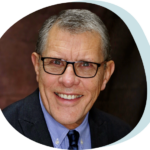
The Integration of Spirituality and Psychotherapy: The Ethical Move From Topic, To Research, To Boundaries, To Application, To Transformation
The Integration of Spirituality and Psychotherapy: The Ethical Move From Topic, To Research, To Boundaries, To Application, To Transformation
Information
Date & Time
-
-
Description
In recent years, there has been a growing interest in the relationship between counseling and spirituality. Spirituality is an important aspect in the lives of clients we serve; however, many counselors lack adequate training to effectively and ethically incorporate spirituality with psychotherapy. The two terms, spirituality/religion and psychotherapy have too often been polarized and/or set over against each other. Religious advocates argue against concepts of mental illness and psychotherapists often say spirituality/religion has no place in psychotherapy. Freud viewed religion as a collective neurosis (Rizzuto, 1996). Albert Ellis (1973) said that psychotherapy should have “no truck whatever with any kind of miraculous cause or cure . . . or any kind of sacredness.” Research validates the role of spirituality in counseling; spirituality, combined with counseling, is associated with “a variety of adjustment indicators including lower levels of depression and alcohol consumption, fewer somatic complaints, fewer interpersonal problems, lower mortality, and greater levels of life satisfaction, more use of social supports and overall coping ability.” (Meichenbaum, 2008).
The thesis of this presentation is that purely humanistic understandings of healing fall short. Increasingly therapists are inundated with a plethora of new counseling theories and techniques, many with roots in traditional forms. Attempting to discern the best counseling style(s) often becomes confusing, especially when seeking evidence-based practices. In the past, counselors were taught to identify a theory of counseling, become well-schooled in the practice of that theory, and use it primarily in their counseling. However, an emerging philosophy of counseling encourages an integrative model.
Integrating spirituality and psychotherapy is an attempt to answer a question that deserves our unbiased attention. How do people whose minds and souls have been deeply wounded find healing? This workshop will explore approaches to counseling that respect the diversity of those we serve and create an environment that encourages and enables people to not only change, but to experience inner change—transformation that transcends the efforts of counselors and their client. Change and well-being, is never the sum of collected techniques; authentic change is that process in which a fragmented self, to use a phrase by William James, becomes “unified and consciously right, superior and happy.”
Application, authentically integrating spirituality and psychotherapy, is important if we are going to help clients heal, those whose minds and souls have been deeply wounded. In this workshop participants will learn how to incorporate spirituality in the biopsychosocial spiritual assessment, develop goals and objectives, and utilize holistic counseling techniques.
Presenters

Jack is the founder of Psuche Education, Counseling & Coaching Services. He has 16 years in the field of substance disorders and mental health, primarily with the Oklahoma Department of Mental Health and Substance Abuse, where he served as the Admissions Director at Rose Rock Recovery Center, a female residential facility for women with co-occurring issues, utilizing the Sanctuary Model. He served as the Executive Director at Clay Crossing, a faith-based co-occurring residential facility for men. In addition, he has done contract work and served as a consultant for MONARCH, a residential facility for women. In his doctoral dissertation/project he integrated spirituality, human development theories and psychotherapy. He is currently compiling a book about his philosophy of counseling, including types of groups and presentations he utilizes in a residential setting for those struggling with co-occurring issues. He developed the Together We Thrive, a K-12 program designed to identify at risk children and develop initiatives to assist them. He has 30 plus years of professional experience from a broad range of experiences (i.e., workshop presenter, adjunct teaching, substance disorders and trauma specific counseling and training, administration, research, program development, institutional assessment and development, community service, leadership development, reentry/criminal justice, chaplaincy, etc.).